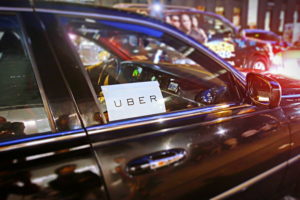 The U.S. Department of Justice (DOJ) has filed a lawsuit against Uber, accusing the rideshare service of discriminating against people with disabilities by imposing a surcharge on those who need more time to get into vehicles.
The U.S. Department of Justice (DOJ) has filed a lawsuit against Uber, accusing the rideshare service of discriminating against people with disabilities by imposing a surcharge on those who need more time to get into vehicles.
Uber started charging a fee in 2016 to compensate drivers for wait times that exceeded two minutes between their arrival at a pick-up and the journey’s start. (The fee kicks in after five minutes for Uber Black or SUVs.) Drivers had complained that lengthy waits were costing them out of pocket. But the new policy unfairly discriminates against people who, for example, need to fold up a wheelchair or walker, or who need more time simply getting from their home entrance to the car, asserts the Justice Department.
“Uber and other companies that provide transportation services must ensure equal access for all people, including those with disabilities,” Kristen Clarke, the assistant attorney general for the Justice Department’s civil rights division, said in a press release.
The lawsuit, filed November 10 in the U.S. District Court for the Northern District of California, claims that the policy violates the Americans with Disabilities Act and should be changed. Furthermore, it calls for a civil penalty and asks that damages be paid to customers affected by the policy, and that employees and drivers be educated on the provisions of the Act.
Uber told National Public Radio and other news outlets that the new policy was never supposed to apply to people with disabilities, and that it had repaid customers who identified themselves as such after they had complained to the company. Prior to the lawsuit, it had also revised the policy, automatically exempting people with disabilities, the company said. Uber added that it was disappointed in the lawsuit, saying the company was already in discussions with the Justice Department on the matter.
The average waiting fee is 60 cents per customer, the company says.

Recent Comments